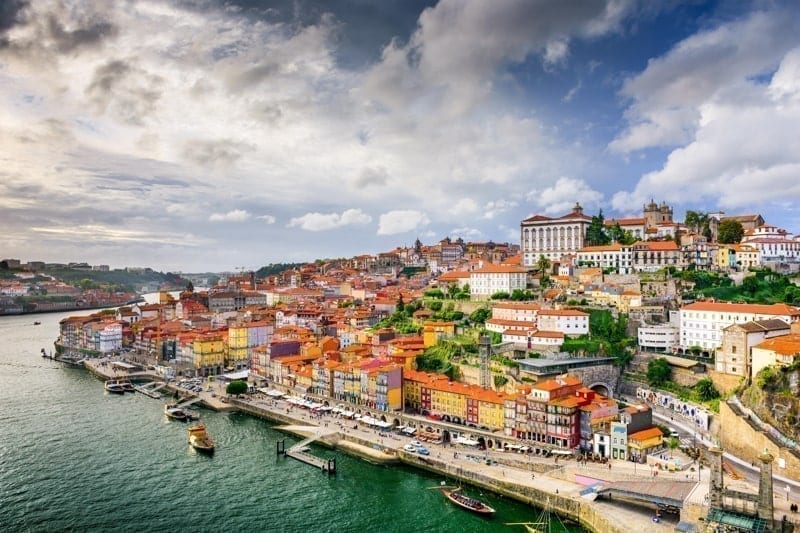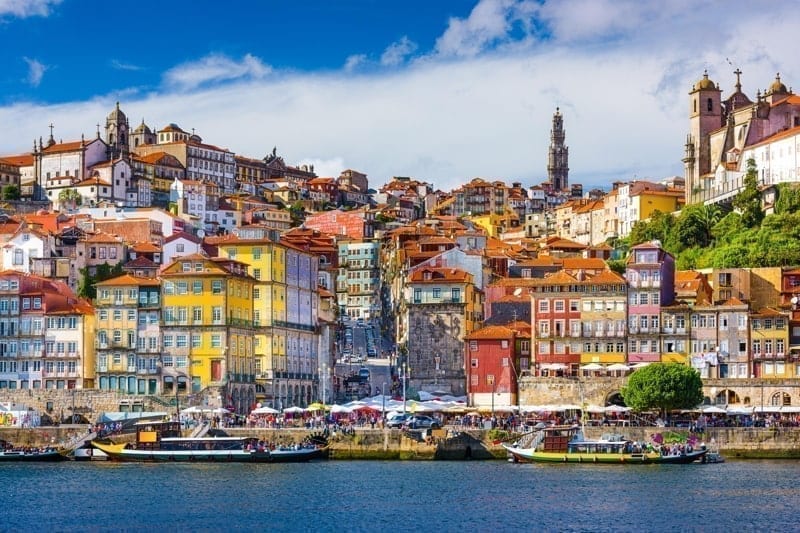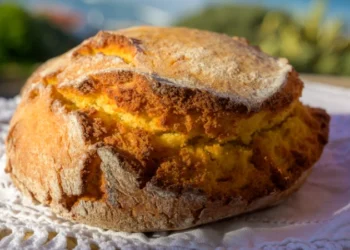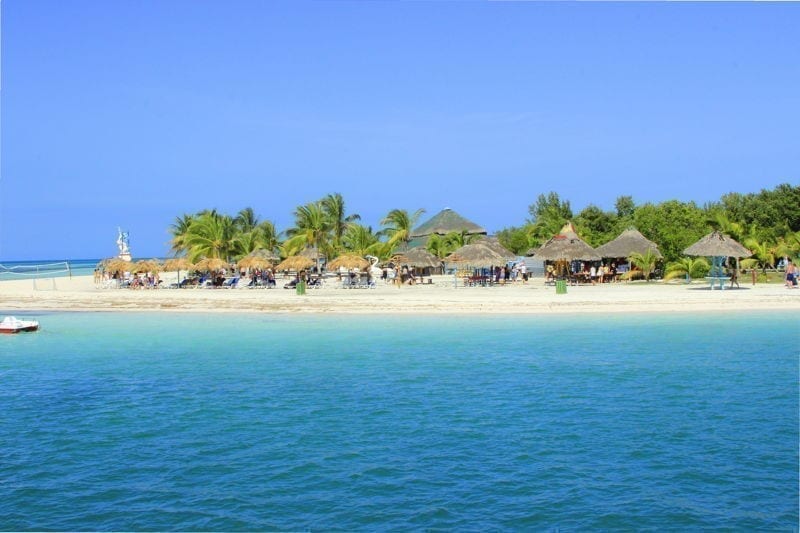Picture a chain of historic and charming small towns strung together by a single-lane highway, people walking or biking along, passing roadside stands offering fresh fruit at unbeatable prices (3 euros for a 5-pound bag of oranges!).
The weather is warm, and blossoming vines grow over the stucco walls that hide beautiful villas inside.
Thanks to fantastic weather year-round, with more than 300 sunny days a year, every day is a perfect day to get out and enjoy your new home (and you won’t need to worry about heating or air conditioning bills).
Continue east and small towns give way to flowering hedges, tall trees, and grasslands. The landscape is an eye-candy explosion of orchards and flowers that bloom year-round, across more than 200 kilometers of craggy coastline and some of Europe’s best beaches…
This is Portugal’s Algarve… and, as alluring as its current assets are, I’m a history nerd and a sucker for good stories, of which this region has many.
Allow me to share a few of my favorites…
The Beginnings Of Portugal
Thanks to their long reign, you’ll notice a strong Moorish influence throughout the region. In fact, they named the place. Algarve derives from the Arabic “Al-Gharb,” meaning “The West”… though in fact the Algarve’s long coast faces mostly south. Many of the region’s churches—including some in Loulé, Faro, and Tavira—were originally mosques.
As well as leaving an architectural legacy, the Moors also left a wealth of exotic crops, introducing the fig, carob, almond, and orange trees that punctuate the landscape throughout southern Portugal and influence its cooking.
The Romans were in this part of the country, too, and are credited with planting the olive trees the area is known for, along with the local production of salt. The bridge of Tavira dates to the Romans, and the introduction of Latin was the base for the Portuguese language.
Indeed, Portugal is one of the oldest countries in Europe, its name first appearing in print in 868 and with the same defined borders since 1249.
Lisbon is the second-oldest European capital (after Athens), a full four centuries older than Rome itself. Settled by the Phoenicians around 1200 B.C., they recognized the excellent transport possibilities offered by the River Tagus.
Portugal was arguably the first Catholic country in Europe, but many of the region’s churches, with their intricate gilded wood designs in the Baroque style, came later, during the colonization of Brazil in the 18th century.
Portugal’s is one of the oldest continuously serving navies in history, its origins dating to the 12th century. The alliance between England and Portugal, originally signed in 1373, is the oldest in the world still in force. Both countries have entered wars to defend the other.
Portugal did something else for England—it introduced the habit of drinking tea. The world owes its love of tea not to Britain but to the Portuguese Catherine of Braganza, who married King Charles II of England and brought her tea customs with her to the British court.
Portugal In The Spotlight
In recent history, Portugal has been mostly ignored and overlooked, but there was a time when this country had the world’s attention. It was the Portuguese Prince Henry the Navigator, an architect of the Age of Exploration, who bid his men to “sail on, sail on.” Those orders compelled brave adventurers around the Cape of Good Hope to China and India and then across the Atlantic.
A major power in Europe at the time, Henry the Navigator sailed from the Algarve to discover the Portuguese islands east and south and to conquer the African coast and Morocco. Later, Vasco da Gama, among others, discovered the routes to India and Brazil, resulting in the largest trading empire in the world.
Towns like Tavira became important trading ports. Later, during almost 30 years of war with Spain, fortresses were built along the borders and the coastline to protect the cities, and many of these remain today.
Half of the New World belonged to Portugal. In 1494, the Treaty of Tordesillas gifted the country with Brazil, Africa, and Asia, making the Portuguese Empire the first global empire in history. Its colonial period was one of the longest lived, lasting for almost six centuries from the taking of Ceuta in Africa in 1415 until Macau was handed over to the Chinese in 1999.
In 1755, after an earthquake and the tsunami that followed, many Algarve cities were destroyed. Faro survived and became the region’s capital.
Portugal Today

In 1974, 50 years of dictatorship ended and Portugal became democratic. The Algarve soon became known for its tile work, lace, cork, and agriculture.
Somehow this great and grand country with such a long and illustrious history fell off the world stage, and, more recently, Portugal was one of the hardest hit EU countries in the post-2008 crisis period…
But, if Portugal is anything, she is flexible, creative, and, ultimately, a survivor. Whatever trouble you put in her path, she manages to overcome it—often by thinking outside the box, pursuing some contrarian strategy that has pundits shaking their heads in disbelief.
Take her drug crisis of the 1990s as an example. The country was falling into a heroin hole. It was possibly the worst drug epidemic the world has ever seen—people would shoot up in broad daylight, on the street in plain sight. An entire part of the city—a very visible part—had been given over as a user den and drug market. A full 1% of the population was addicted and the country had the highest rate of HIV in Europe.
Portugal’s solution? No limitations, no licensing… just plain and simple legalization of all drugs, period, imposed practically overnight.
Today, 20 years later, drugs are barely a concern—transplanted by the economic crisis that rocked the world just over a decade ago…
But unlike Greece, Italy, Ireland, and other EU nations in crisis, Portugal again chose policies that flew in the face of accepted political strategies. The government resisted the EU-imposed austerity measures, rolling them back as quickly as they feasibly could. Posting positive GDP growth in 2014, the country quickly did an about-face, creating a business-friendly environment that incentivizes rather than discourages.
While the government is still conservative in investment, where they’ve chosen to spend their money has successfully ignited the economy. Its focused initiatives invite foreigners and foreign companies to come and spend, including significant tax breaks for both the individual, the investor, and the businessman.
As a result, 2019 posted the highest GDP per capita in a decade.
Like the rest of the world, Portugal has been struggling with a new crisis—the global pandemic.
And, in typical Portuguese fashion, they have been faring better than most. The country adopted strict measures early on. Indeed, even before the government put any lockdown measures in place, the public started its own informal lockdown, doing what they believed was the right thing to do right away.
It has helped that people already relied heavily on the public health care system. It’s free. So no one felt compelled to try a DIY approach to getting cured to avoid paying for medical costs.
In this case, we’d say that past performance will prove a good indicator of future performance… and that Portugal will again come out the other side of crisis stronger and better than ever.
Kat Kalashian
Editor, In Focus: Europe

















